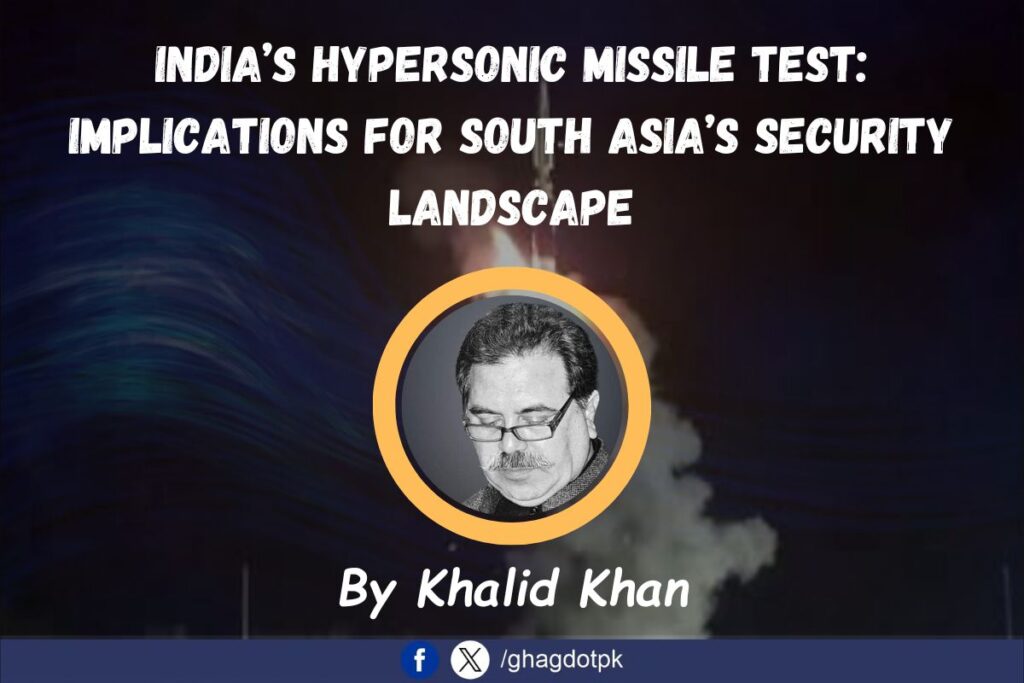By Khalid Khan
India’s recent test of a hypersonic missile has drawn significant attention across South Asia, raising questions about its impact on regional security and stability. While New Delhi has hailed this as a technological breakthrough, it is crucial to assess the broader implications for an already tense region.
Hypersonic missiles, capable of traveling at speeds greater than Mach 5, represent a new era of strategic weaponry. Their ability to evade traditional missile defense systems and strike targets with unparalleled precision makes them a formidable addition to any military arsenal.
A Regional Perspective
For Pakistan, India’s advancement in hypersonic missile technology can not be viewed in isolation. The South Asian region has historically grappled with mistrust and periodic escalations, particularly between the two nuclear-armed neighbors. Defense experts argue that the introduction of such cutting-edge weapons could exacerbate existing tensions and destabilize the fragile balance of power.
The Need for Strategic Balance
Pakistan has consistently maintained that regional security depends on strategic stability and restraint. While Islamabad advocates for peaceful coexistence and conflict resolution through dialogue, it has also invested in building a credible deterrence capability to safeguard its sovereignty and territorial integrity.
In light of India’s hypersonic missile test, analysts suggest that Pakistan may consider bolstering its own defense systems to maintain a deterrence equilibrium. However, this would require careful deliberation to avoid contributing to an arms race in the region.
Calls for Arms Control and Dialogue
The growing sophistication of military technology in South Asia underscores the need for arms control measures. Experts stress that regional and global stakeholders must work towards fostering dialogue and confidence-building mechanisms to address mutual security concerns. Without such efforts, the introduction of advanced weaponry like hypersonic missiles could lead to heightened risks of miscalculation and escalation.
International Responsibility
The international community has a role to play in mitigating the potential consequences of advanced weapons proliferation. Encouraging transparency, restraint, and adherence to international norms can help ensure that technological advancements do not undermine regional or global peace.
A Path Forward
India’s hypersonic missile test is a reminder of the rapidly evolving security environment in South Asia. For Pakistan, this development highlights the importance of maintaining a robust defense posture while continuing to advocate for peace and stability in the region.
The path forward lies in fostering dialogue, avoiding provocative actions, and working towards a framework of mutual respect and security. Only through collective efforts can the region move beyond cycles of tension and build a future anchored in stability and cooperation.






